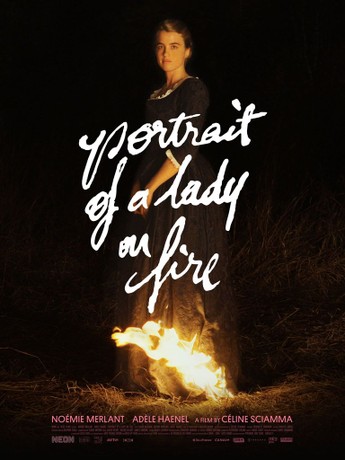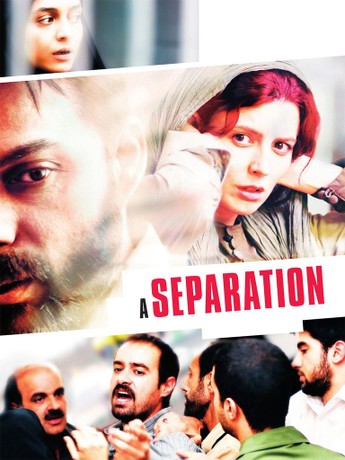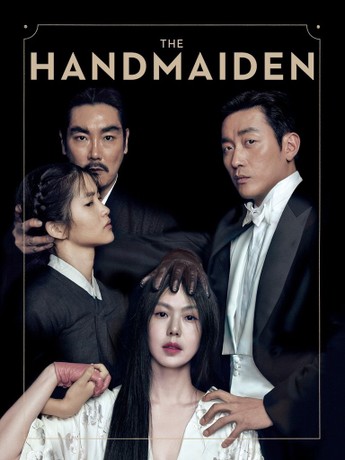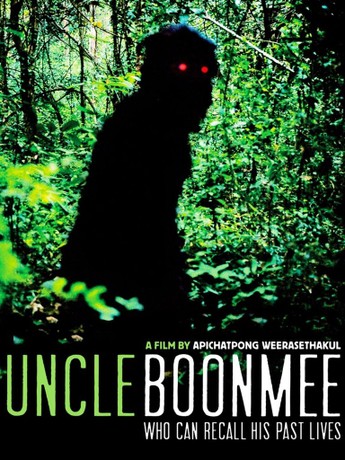Lights, camera, action! Are you ready to discover some amazing films you might have missed? If you love movies, you might already know about Mubi. It's like having a film festival at your fingertips, offering a curated selection of films from around the world.
Whether you're a seasoned movie fan or new to international films, Mubi offers a unique viewing experience. Stay tuned as we reveal the top 10 Mubi movies you can't miss!
Portrait of a Lady on Fire
Synopsis
"Portrait of a Lady on Fire" is a beautiful story set in the 18th century. It's about Marianne, a young painter, and Héloïse, a reluctant bride. Marianne is tasked with creating a secret wedding portrait of Héloïse.
As Marianne observes Héloïse, a strong bond forms between them. This story of forbidden love is set on a remote French island. It's filled with longing glances and unspoken desires.
Cinematic Style
The film is a visual treat, with stunning coastal views and beautifully lit interiors. Director Céline Sciamma's slow pace makes the story unfold slowly. This engages the audience in every moment.
Her use of natural light adds to the film's beauty. The minimalistic approach and lack of music make the film feel authentic. It fully immerses the viewer in the period.
Themes and Interpretations
The film explores love, freedom, and femininity. It shows how women are limited by societal constraints. Through Marianne and Héloïse's story, it challenges traditional views of art and identity.
It's a powerful look at how love can be both freeing and confining. This leaves a lasting impact on those involved.
A Separation
Plot Overview
"A Separation" is a gripping story about a couple, Simin and Nader, whose marriage is failing. They disagree on whether to leave Iran for a better life. When Simin leaves, Nader hires a caregiver for his father, leading to complications.
The film builds tension as it unfolds. It keeps viewers engaged until the end.
Critical Acclaim
"A Separation" has received worldwide acclaim for its powerful story and complex characters. It won the Academy Award for Best Foreign Language Film in 2012. It was the first Iranian film to do so.
Critics praise director Asghar Farhadi for his nuanced storytelling. The film evokes empathy and sparks intense discussions. It's a key film in contemporary cinema.
Cultural Context
The film is set in modern-day Iran and offers insights into the country's legal system and gender roles. It focuses on family dynamics and moral conflicts, making it relatable worldwide. Farhadi's film is a powerful lens for understanding justice, honor, and human relationships in a changing society.
Cold War
Storyline
"Cold War" is a passionate love story set during the Cold War in Poland, Berlin, Yugoslavia, and Paris. It follows Wiktor and Zula, two mismatched lovers who meet in 1949. Their love is intense and connected to the turbulent times.
As they navigate personal and political boundaries, their romance reflects the period's hardships. Their relationship captures the essence of longing and political turmoil through reunions and separations.
Visual and Musical Elements
The film's black-and-white cinematography is breathtaking. It sets an atmospheric stage that complements the drama and emotions. Each frame is composed to evoke a hauntingly beautiful portrayal of post-war Europe.
The music plays a key role in shaping the mood. Traditional Polish folk songs and jazzy Parisian tunes add depth and authenticity. The soundscapes linger, resonating with the audience long after the credits roll.
Awards and Honors
"Cold War" has received many accolades, showing its artistic mastery. It was nominated for three Oscars, including Best Director for Paweł Pawlikowski. It also won the Best Director award at the Cannes Film Festival in 2018.
This recognition highlights the film’s outstanding direction and performances. It solidifies its status as a cinematic triumph.
In the Mood for Love
Brief Summary
"In the Mood for Love" takes viewers to 1960s Hong Kong. It tells a delicate tale of unrequited love and emotional restraint. Chow Mo-wan and Su Li-zhen, neighbors, form a bond after suspecting their spouses of infidelity.
As they share more time, their connection deepens. But they choose to uphold their morality, refraining from an affair. The film elegantly portrays the complexity of human emotions against a backdrop of cultural and social nuance.
Direction and Cinematography
Wong Kar-wai's legendary direction is the heart of "In the Mood for Love." His unique visual style uses vibrant colors and exquisite mise-en-scène. Every scene is thoughtfully constructed, often using tight, enclosed spaces.
Cinematographer Christopher Doyle’s work dazzles, capturing poetic and nostalgic imagery. This imagery lingers in the viewer’s mind.
Influence and Legacy
The film's influence extends far beyond its initial release. It is widely regarded as one of the best films of the 21st century. It has inspired filmmakers and artists globally.
"In the Mood for Love" challenges conventional narratives, emphasizing mood and atmosphere over dialogue. Its thematic exploration of love, isolation, and longing has left an indelible mark on cinema. It has established Wong Kar-wai as a formidable auteur and ensured the film’s place in cinematic history.
Shoplifters
Narrative and Characters
"Shoplifters," directed by Hirokazu Kore-eda, is a heartwarming and thought-provoking film. It explores the intricacies of makeshift families. The story follows a group of marginalized individuals living on the edges of society who form a family unit through bonds rather than blood.
The narrative revolves around Osamu Shibata and his family, who rely on petty theft to make ends meet. Each character has a unique backstory, adding layers of depth and complexity to the plot. The film invites viewers to rethink the conventional definition of family and the choices driven by circumstance and affection.
Social Commentary
Beneath the intimate story of familial bonds, "Shoplifters" offers an insightful social commentary. It sheds light on poverty, class disparity, and societal neglect. The film challenges viewers to empathize with individuals who are often invisible to society.
The subtle exploration of societal issues is woven seamlessly into the narrative. It prompts audiences to self-reflect on the often harsh judgments placed on those who live outside the conventional norms.
Reception and Awards
"Shoplifters" has received widespread acclaim from critics and audiences alike. It was awarded the prestigious Palme d'Or at the Cannes Film Festival. This highlights its global impact.
The film's warmth and empathy resonate universally, earning it a nomination for the Best Foreign Language Film at the Academy Awards. These accolades underscore its status as a modern masterpiece within Mubi's collection of cinematic gems.
The Handmaiden
Plot Description
"The Handmaiden" by Park Chan-wook is a thrilling tale of love, deception, and revenge set in 1930s Korea. It's inspired by Sarah Waters' "Fingersmith." The story revolves around Sook-hee, a young woman, and Lady Hideko, a Japanese heiress. As the plot unfolds, it reveals layers of intrigue and schemes, keeping viewers hooked.
Unique Storytelling Techniques
The film's storytelling is a blend of art and ingenuity. It uses non-linear techniques to show the story from different angles. This slow reveal adds to the suspense and emotional depth. Park's focus on visuals and set designs creates an immersive experience, blending beauty with the sinister.
Impact on Global Cinema
"The Handmaiden" made a big impact on global cinema. It introduced a unique Korean aesthetic and universal themes of power and desire. Its success sparked more interest in South Korean cinema, inspiring filmmakers and audiences globally. It's a standout on Mubi, celebrated for its diverse storytelling.
Uncle Boonmee Who Can Recall His Past Lives
Story Elements
"Uncle Boonmee Who Can Recall His Past Lives" takes you on a journey through Uncle Boonmee's life and memories. Set in northeastern Thailand, it explores Boonmee's supernatural encounters. The story reflects on reincarnation, karma, and the connection between life and death.
Director's Vision
Apichatpong Weerasethakul directed this masterpiece. He aimed to mix reality with the spiritual. Drawing from his experiences and Thai folklore, Weerasethakul created a film that's both personal and universal. His style blends the mystical with everyday life, inviting viewers to reflect on existence.
Viewer Reception
"Uncle Boonmee Who Can Recall His Past Lives" received critical acclaim. It captivated audiences with its poignant story and visual poetry. While its slow pace may not appeal to all, it offers a deep and unforgettable experience. It even won the Palme d'Or at the 2010 Cannes Film Festival!
Roma
Synopsis and Themes
"Roma" by Alfonso Cuarón explores a year in a middle-class family's life in Mexico City in the early 1970s. It follows Cleo, an indigenous maid, and her experiences. The film delves into love, social hierarchy, and resilience during political turmoil.
Cinematic Achievements
Cuarón's "Roma" is a visual masterpiece. Shot in monochrome, it captures the era's emotional landscape. The long takes and precise camera work immerse viewers in Cleo's world. The film's technical excellence earned it several Academy Awards.
Cultural Significance
"Roma" is significant for its cultural impact. It highlights the stories of indigenous workers and women, showcasing their strength. The film offers a poignant look at Mexico's 70s, resonating with audiences worldwide. It's a true masterpiece on Mubi.
Moonlight
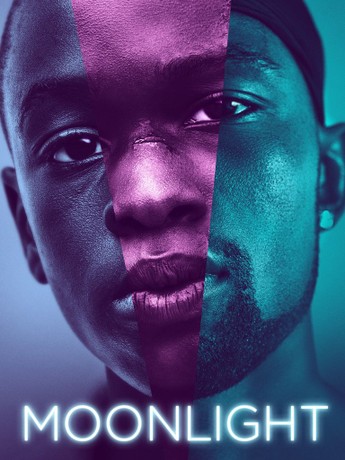
Narrative Structure
"Moonlight" has a unique story structure. It's divided into three parts, each showing a key stage in Chiron's life. Director Barry Jenkins crafts the story, making us feel Chiron's growth from a kid to an adult.
Each part shows Chiron's changing identity and his relationships. This makes us see his world in a touching and meaningful way.
Key Themes
The film explores identity, masculinity, and family bonds. It shows the struggle of finding oneself, especially when society has its own ideas. Moonlight also looks at the role of nurture versus nature in shaping who we are.
It talks about love, both friendship and romance. It challenges the usual ideas of masculinity. This gives us a deeper look at what it means to be true to oneself.
Awards and Critical Perspective
"Moonlight" is praised for its real portrayal and technical skill. It won the Academy Award for Best Picture in 2017. It also got Oscars for Best Adapted Screenplay and Best Supporting Actor for Mahershala Ali.
Critics love its bold story and stunning visuals. The music adds to the emotional depth. It's seen as a cultural gem and a film that shares universal truths about humanity.


